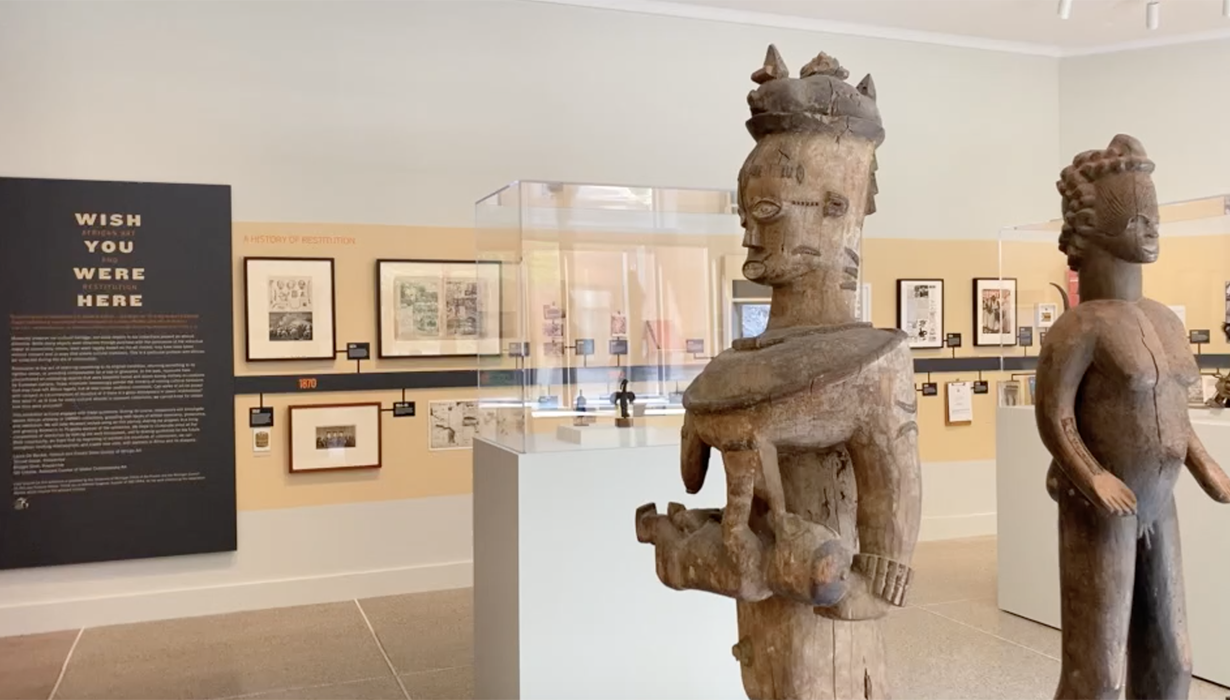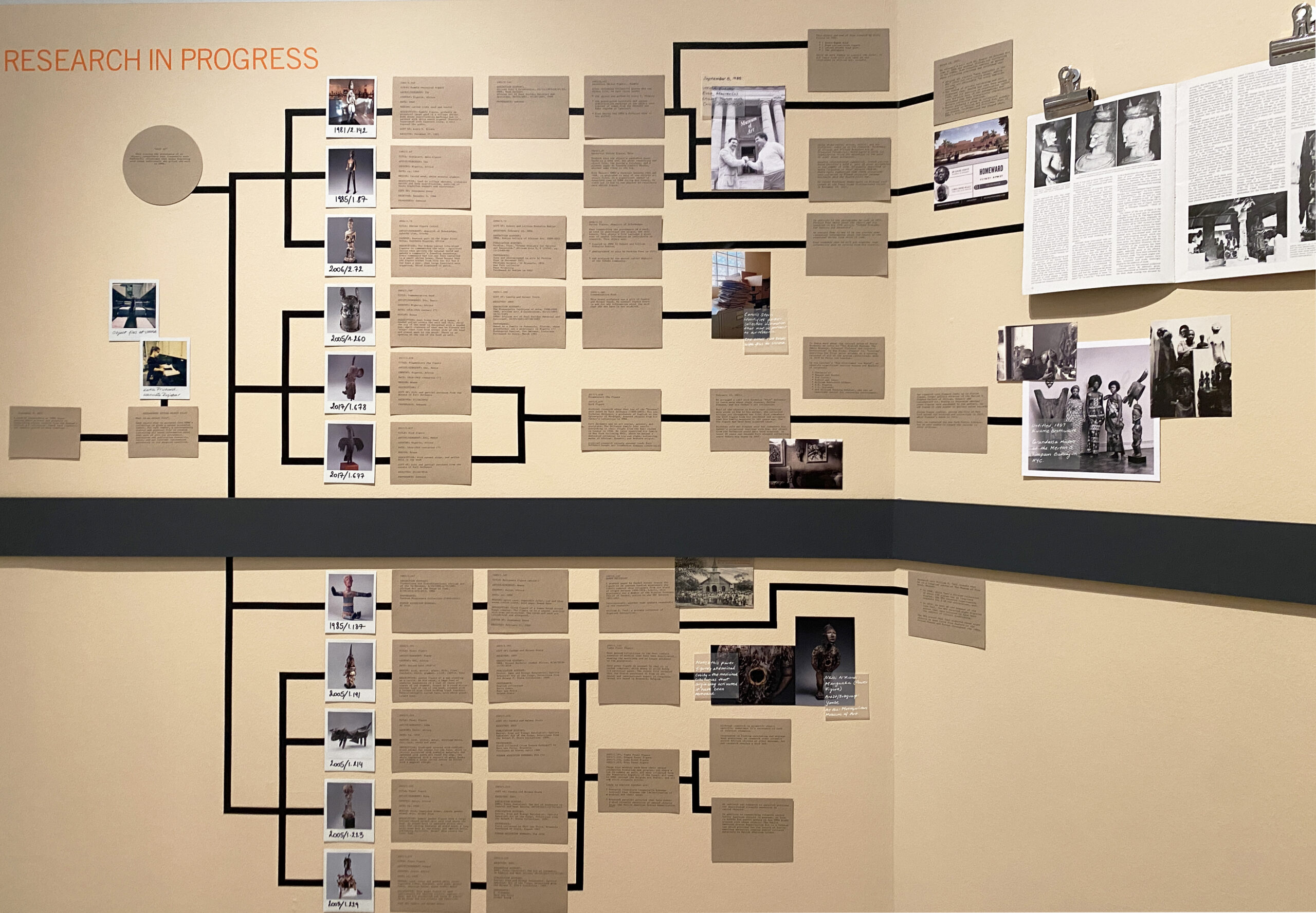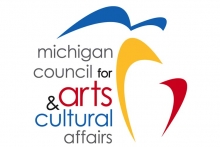
Wish You Were Here: African Art and Restitution
An in-public investigation into 11 African works of art from UMMA’s collection.
This exhibition proactively engages with debates about restitution and the ethics of museums’ owning African heirlooms collected during the era of colonization. The investigation and research into 11 works of African art will be conducted publicly — visitors will have access to documents, photographs, and correspondence that will help us develop a better understanding of each object’s history, grappling in real time with questions surrounding legal and ethical ownership of these artworks. Though complex, this project presents exciting opportunities for museum transparency and creating new pathways for relationship-building with partners in Africa and its diaspora.
REPATRIATION:
the act or process of restoring or returning human remains or cultural artifacts to their country of origin.
REPARATION:
the act or process of making amends for past wrongs.
RETURN:
to bring to, send to, or put something back in its former or proper place.
RESTITUTION:
Museums preserve our cultural heritage, but some objects in our collections present an ethical dilemma. While many objects were obtained through purchase with the permission of the individual maker or community, others, even when legally traded on the art market, may have been taken without consent and in ways that violate cultural traditions. This is a particular problem with African art collected during the era of colonization.
Restitution is the act of restoring something to its original condition, returning something to its rightful owner, or providing compensation for a loss or grievance. In the past, museums have concentrated on restituting objects that were blatantly looted and stolen during military occupations by European nations. Today museums increasingly ponder the morality of owning cultural heirlooms that may have left Africa legally, but at best under unethical conditions. Can works of art be traded with consent in circumstances of injustice or if there is a gross discrepancy in power relationships? And what if, as is true for many cultural objects in museum collections, we cannot know for certain how they were procured?

Investigation Research
The investigation into 11 works from UMMA’s African collection can be viewed online.
View InvestigationSUPPORT
Lead support for this exhibition is provided by the University of Michigan Office of the Provost and the Michigan Council for Arts and Cultural Affairs.
